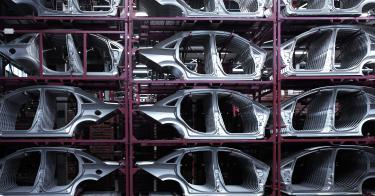Foreign investment is vital for a healthy U.S. economy.
America’s unique and hospitable climate for foreign investment brings with it economic growth, quality jobs, increased consumer choice, and reasonably priced goods.
As President Donald Trump recently told business leaders in Japan:
When you want to build your auto plants, you will have your approvals almost immediately. When you want to expand your plants, you will have your approvals almost immediately.
And in the room, we have a couple of the great folks from two of the biggest auto companies in the world that are building new plants and doing expansions of other plants. And you know who you are, and I want to just thank you very much. I want to thank you.
According to the Japan Automobile Manufacturers Association, Japanese-owned carmakers—including Toyota, Nissan, and Honda, among others—have invested more than $45 billion in manufacturing in the U.S. as of 2016, and are directly responsible for more than 90,000 jobs from Massachusetts to California.
The same characteristics that make the United States attractive to Japanese automobile manufacturers also make it attractive to the rest of the world.
In early 2017, South Korean car manufacturer Hyundai promised to increase its investment in the United States by $3.1 billion. European car companies, such as Volkswagen, BMW, and Mercedes, own and operate car-manufacturing facilities in South Carolina, Alabama, and Tennessee, and European companies as a whole are directly responsible for millions of American jobs.
Despite a heavy regulatory burden and a tax system in need of reform, the United States is able to bring a rare combination of advantages that is attractive to investors.
America combines stability, a hospitable environment for investment growth, and a highly skilled and adaptable labor force. If the Trump administration is successful in its efforts to reduce tax and regulatory barriers, the United States will be even more attractive to U.S. and foreign investors.
That is part of why mandating that people “buy American” is largely unnecessary, as the United States already has a unique advantage in many fields.
Foreign direct investment is crucial to the American economy. Every state depends on it. Nationwide, 7.4 million Americans owe their jobs to foreign direct investment. The results are undeniable.
This piece originally appeared in The Daily Signal



